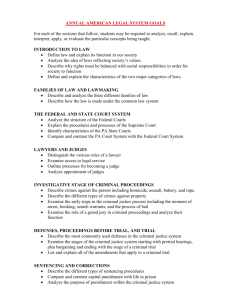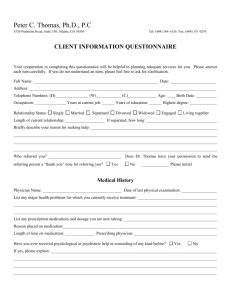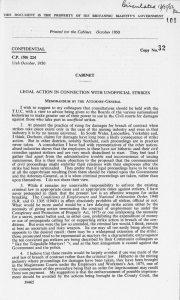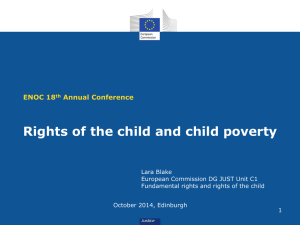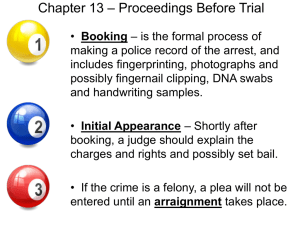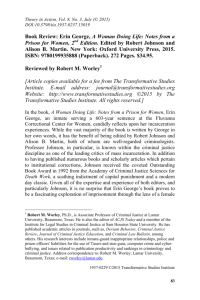Videos_files/R Husbands legal aid Joberg
advertisement
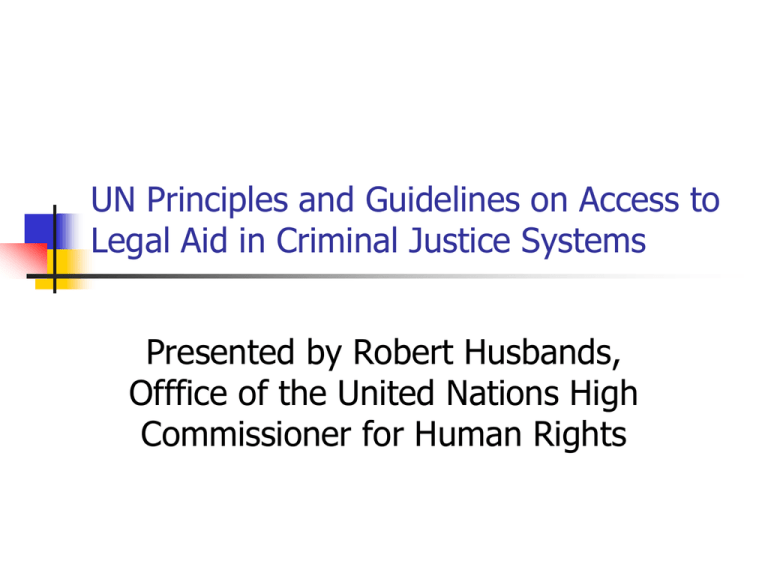
UN Principles and Guidelines on Access to Legal Aid in Criminal Justice Systems Presented by Robert Husbands, Offfice of the United Nations High Commissioner for Human Rights Covenant on Civil and Political Rights, Article 14, para. 3 (d) In the determination of any criminal charge again him, everyone shall be entitled to the following minimum guarantees in full equality .... To be tried in his presence, and to defend himself in person or through legal assistance of his own choosing; to be informed, if he does not have legal assistance, of this right; and to have legal assistance assigned to him, in any case where the interest of justice so require, and without payment by him in any such case if he does not have sufficient means to pay for it. Summary of Article 14, para. 3 (d) rights Applicable only in criminal proceedings Uses the term ‘legal assistance’ rather than legal aid Right is available to everyone in full equality State has the duty to inform the person of his or her right to legal assistance; and Right to assignment of legal assistance without payment is applicable only where the interests of justice so require. Human Rights Committee Body of 18 independent experts that monitor implementation of the Covenant elected by States that have ratified the Covenant If a State has accepted the individual complaint procedure, the Committee hears individual communications that are a type of appeal from a State’s adjudicatory jurisdiction Its Views, which are what its decisions are called, on these individual complaints, are referred to as the Committee’s jurisprudence and are non-binding What the interest of justice so requires : Committee decisions Minor offences that do not require prison and result in fines only do not meet the test for granting free legal assistance Death penalty cases require free legal assistance at all stages of the proceedings No Views on individual communications falling between these two extremes, i.e. serious crimes or any deprivation of liberty UN Principles and Guidelines The Principles and Guidelines mandate that whenever the accused risks any term of imprisonment, he or she must have access to legal aid Standard is similar to that adopted by some States (e.g. USA) and the European Court of Human Rights (47 States affected) What is meaning of legal assistance at all stages of criminal proceedings Human Rights Committee has said that legal assistance, including free legal assistance in capital cases, is applicable at all stages of proceedings Individual communications to date address only the first judicial preliminary hearing What about access to free legal assistance when a person has been arrested, detained, is a suspect or charged? UN Principles and Guidelines address this issue Principles and Guidelines provide that when a person is arrested, detained, suspected of or charged with a criminal office the person has a right to legal aid. Principles and Guidelines provide that at the time of deprivation of liberty and prior to any questioning, the person must be informed of their right to legal aid, the right to remain silent, and the adverse consequences of voluntarily waiving this rights Standard in Principles and Guidelines for information, right to silence, access to free legal assistance based on national and regional law Decision of U.S. Supreme Court in Miranda v. Arizona (1966); Decision of the European Court of Human Rights in Salduz v. Turkey (2008) The end The end
